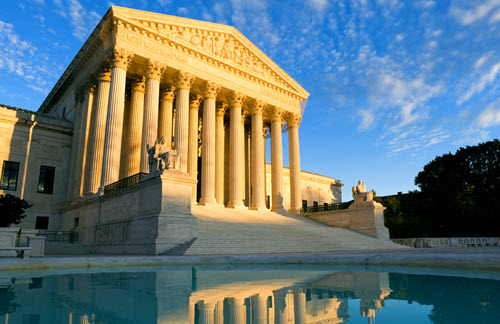
In a highly unwelcome decision for Native tribes relying on treaties with the U.S. government, write Procopio Native American Law Partner Ted Griswold and legal intern Ariel Jones, the U.S. Supreme Court held recently that the government’s general trust obligation to Navajo Nation does not require the federal government to take affirmative steps to secure water for the Navajo reservation. The tribe is located in a region undergoing a historic drought, and it had argued the U.S. had a legal obligation to assist the tribe obtain much-needed water access.
In the 5-4 decision in Arizona v. Navajo Nation, Justice Brett Kavanaugh opined for the majority that nothing in the text of the 1868 treaty between Navajo Nation and the U.S. creates a “conventional trust relationship” with regards to water. Justice Neil Gorsuch, who not infrequently votes on the side of Tribal nations, made clear in his reproving dissent that nothing about the U.S. relationship with Navajo Nation, or any tribe for that matter, is conventional.
Learn more about the case, and how Ted and Ariel believe the decision not only disregards the principles of federal Indian law but also misunderstands water law, in a new article published by Procopio.


